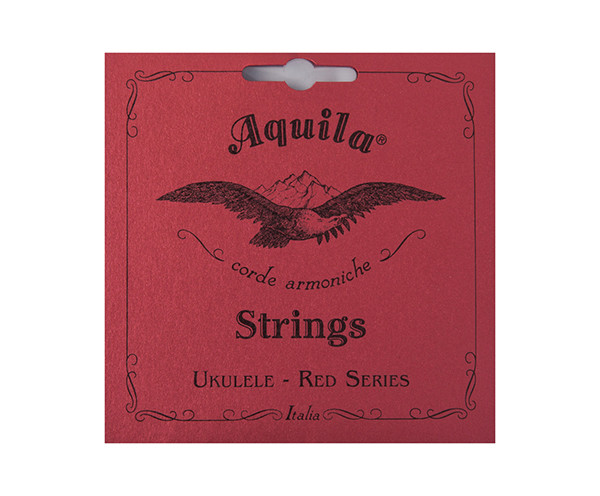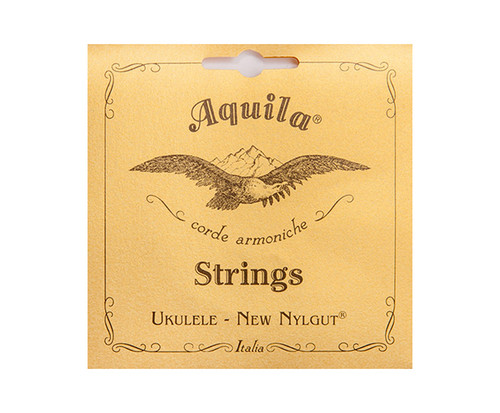Product Overview
Specifications:
- String: Unwound 4th string in low G
- Instrument: Soprano Ukulele
- Colour: Red-brown
- Surface: Slightly rough; this texture has eliminated the squeak that sometime happens with the Nylguts
- Elasticity/Elongation: Similar to the Nylgut & Supernylgut strings
- Performances: Do not break under stretching, fast and stable tuning
- Intonation: Accurate past the 12th fret
- Density: About twice that of standard white Nylgut
- Made in: Italy
Features:
Aquila’s Red Series revolutionary new approach to achieve lower frequencies in their strings involves changing the specific weight of the material, increasing it progressively to leave the gauge unchanged. This involves adding red copper powder to increase the density of the string to almost twice as much as standard white Nylgut. This results in a stiffer string capable of lower tunings, less breakage and better intonation. This is compared to the old method of increasing a string’s gauge which would result in internal dampening making the string less bright, less responsive and more muffled. The strings maintain their intonation better, because thicker strings need to be fretted harder, pulling them further out of tune.
- Very rich projection
- Unique feeling and strong consistent sound
- Bright, powerful and responsive throughout the entire range of the fret board
- Combines new technologies to achieve a most desirable outcome
- Strings maintain their intonation
- Provide superior performance over traditional strings
- Unique look
- No oxidation of the metal wire in the case of acid sweat
Low G
With Aquila’s RED SERIES® strings you can finally tune your ukulele to Low G with the certainty of powerful sound quality and a superior intonation across the frets that is fully integrated with that of the upper treble strings.
Note: the wound strings used in low G Sets use a very fine wire wrapping on the wound strings in order to produce their excellent tone. These strings do not have as long a life span and therefore will need to be replaced much more often than the plain Nylgut strings that make up the rest of the set.







